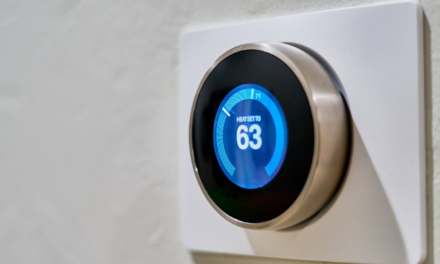REM sleep or rapid eye movement sleep is one of the four stages of sleep (others being light, deep, and awake). Valley Sleep Center’s article “3 Things You Should Know About REM Sleep” explains that this stage of sleep is critical to stimulating areas of the brain necessary for learning, making, and retaining memories. It also creates neural connections that result in your brain working correctly to encourage mental stability and happiness. The brain allows us to move, breathe, and learn new information, which summarizes the many usages for the brain. In short, at this stage of sleep, your eyes move quickly beneath your eyelids, your brain activity increases, your pulse becomes faster, and you experience dreams. All you need to know is that REM sleep is needed for the brain to function correctly, which is vital because the brain allows us to live our lives. This blog post will cover ways to increase REM Sleep. You will find that many concepts overlap due to improving sleep quality leading to better REM sleep.
For the following information, I will be using WHOOP’s article “How to Increase REM Sleep and Improve the Quality of Your Time in Bed.” The article addresses many behaviors many people find useful to increase REM Sleep. I have tried all these behaviors and can confidently say that each one of these works for me. Give them all a shot and introduce the ones that can assist you. The first tip is to hydrate yourself properly throughout the day. Please do not rely on drinking a ton of water before you go to sleep because it makes me wake up in the middle of the night to go to the restroom. The next tip is to have massage therapy or use a steam room that day. Before the pandemic, a gym near my house had a steam room that would help me open up my sinuses, clear my skin, and help me breathe better. Massage helps you relax and reduces inflammation throughout the body, which is one factor that results in REM sleep’s improvement.
My favorite would have to be wearing blue-light blocking glasses before bedtime (I put them on two hours before sleeping). Something I tried at one point was to read in bed before falling asleep. I do not complete this now, but I will admit it made sleeping significantly easier. I found that this worked primarily with fiction because I did not have to concentrate on retaining information that I would have had to do with non-fiction. The next piece of advice is to wear a sleep mask and/or earplugs while sleeping. A good sleep mask will prevent any light from interrupting your sleep or making it harder to fall asleep. I do not necessarily recommend ear plugs because it prevents you from hearing music I listen to. However, I am aware of new headphones that are designed to be worn during sleep which would be an effective way to plug your ears. Then there is also using a sound machine, listening to relaxing music, or listening to white noise during sleep. I have been listening to music to sleep for my entire life. I feel that it helps relax me. I listen to white noise in the form of rain or ocean waves which I think is most beneficial to me because these two things give me the most serenity out of all noises.
I would have to say that the most crucial factor to increasing REM Sleep is to have sleep consistency. This involves you waking up and falling asleep at the same time every night. This assumes that you are sleeping for a suitable amount of time that your body needs. I receive about eight hours of sleep every night and try to always be in bed at 11:00 pm. I used to be an insomniac that occasionally took two to three hours before falling asleep. During school, I was sometimes getting four to five hours of sleep every night. This year, I began falling asleep and waking up at the same time. My insomnia went away in about a week, and I finally understood what it meant to fall asleep quickly and have an incredible sleep. If you are going to do any of these strategies, make sure you keep a constant sleep schedule as it can change your life.
The next set of tips will involve things that inhibit sleep so make sure you try to limit them. Having significant levels of stress throughout the day will make it harder to fall asleep. I would recommend meditation or finding some other self-care technique that will help you reduce stress throughout the day and relax right before falling asleep. I would avoid eating late meals or eating close to bedtime. Several studies have shown that this can increase weight gain. I reason that you need to help your body relax, which it cannot entirely do when it is digesting food. Eating at least three hours before bed (something I do) makes sure you digest your food properly and can have a better sleep.
The next thing you should limit is screened device usage in bed. Try to limit this as much as possible one to two hours before sleeping. The blue light blocking glasses can help reduce the impacts of blue light from a screened device, but it would be better to have no exposure to screened devices. It would be best if you prevent yourself from sleeping in a new place or a bed that is not yours. Psychology Today’s article “Your Brain Does Not Like Sleeping in a New Place” describes how the brain’s left hemisphere stays alert while sleeping in an unfamiliar place while the right hemisphere of the brain rests. The inability of both hemispheres of the brain to relax portrays how it interferes with sleep. The final thing to do that I have yet to experience is stopping or limiting alcohol consumption before going to bed. I would recommend not consuming alcohol at least four hours before sleeping. This ensures you process alcohol and prevents it from interrupting sleep.
All these things can help promote sleep and increase the amount of REM Sleep so that you have healthy levels. I have tried almost all of these tips and have found them successful. Make sure to follow these tips and integrate the ones you find useful into your life because your brain, body, and overall health will be grateful.





